Soil, Soul, Society – Rendezvous with Satish Kumar
Article By Manjula Nanavati
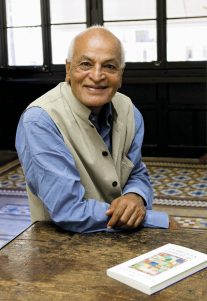 Activist, Author, Academic. Environmentalist, Humanist, Visionary. Satish Kumar believes that the spiritual aspect of our ecosystem has been lost in modern environmental debates, and has been replaced by systemic violence; towards the land, animals, mankind, and even towards ourselves. He maintains that reverence for nature is the only thread that can mend and weave together the fabric of humanity.
Activist, Author, Academic. Environmentalist, Humanist, Visionary. Satish Kumar believes that the spiritual aspect of our ecosystem has been lost in modern environmental debates, and has been replaced by systemic violence; towards the land, animals, mankind, and even towards ourselves. He maintains that reverence for nature is the only thread that can mend and weave together the fabric of humanity.
In pursuit of this ideal he has campaigned for land reform, and has walked from India to the four capitals of the nuclear world as a Pilgrimage for Peace. He has appeared on radio, television and a variety of public forums, speaking and writing tirelessly to raise our collective consciousness. He is the longest serving editor of any magazine in the world; Resurgence Magazine is a testament to his deep commitment to foster ethical living and environmental awareness. In 1990 he co-founded Schumacher College, internationally respected for its practical emphasis on a holistic ecological worldview. Additionally, he serves on the advisory board of Our Future Planet, an online community agitating for change.
Based on his book, You Are, Therefore I Am, The Acropolitan explores the impetus and insight of this spirited man of action. Here are excerpts from our conversation.
The Acropolitan (TA): In your book you say “I wanted to practice Dharma in the world, not pretend to be outside of it…for renouncing the world is a contradiction.” Can you explain that?
Satish ji: We don’t have to go to the mountains, caves or monasteries and forsake the world. Only a few people can do this – and it would make spirituality something that only the elite can practice. What I’m saying in the book is, Dharma should be for everybody and should be every day.
The Upanishads say ishavasya vidhi sharma which means “everything in the world is imbued with the divine spirit.” So there is no separation between the world and the divine. When you act with divine motivation, all your actions become Dharma. For example, when you conduct business, is your motivation profit or is it to serve the community? For Mahatma Gandhi, Martin Luther King and Nelson Mandela, politics was not for ego, power, or control. It was in the service of humanity. The moment your motivation changes, politics becomes spiritual work.
Whatever you do, gardening, cooking, farming, education, or medicine, taking a salary should be the by-product; not the end product. If we do everything with the intention to serve, to be compassionate and kind, then even in our ordinary everyday activities we practice Dharma
TA: But if one’s own conscience is the only compass to judge the drive of right motivation, isn’t it possible to get caught up in the fantasy of our own ego? How do we discern between the two.
Satish ji: I think we have to meditate every day. And in our meditation we have to ask that question to ourselves: Who am I? If you ask your inner voice in your silence: Am I doing this action for my ego, prestige, recognition or money? You will get an honest answer from deep within your soul because the inner voice will not lie. And if the inner voice directs it, you have to undertake a new way of thinking, a transformation, and growth. But only you are the judge of that, and only you can decide if your actions emerge from dharma, or from ego.
When we are driven by ego, we say with pride: I am Indian, I am a doctor, teacher, businessman. That is an egotistical identity. When the answer is: I am a divine being, a spiritual being, here to discover myself…here for service to humanity and for self-realization, then we have finally dropped the narrow definitions that bind us.
This takes a long time. You have to practice and probe. You are on a quest, a pilgrimage. It is about the journey, not the destination, and every day you are refining your intention and your motivation to make more and more dharmic and spiritual choices.
TA: What is the relationship between one’s swadharma and one’s role in society?
Satish ji: Swadharma and role in society are two sides of the same coin. I have to find my particular gift, how I relate to human society and to nature. Ravi Shankar inspired and awakened people through music. Vinoba Bhave inspired people to share their land, to gift. Mother Teresa served by caring for the dying. All three pursued their swadharma not by retreating into themselves, but by bringing their inspiration into the world. They brought spirituality into all their relationships. Swadharma is to find and refine your inner vocation to serve society. Wherever you find joy and ananda, that is your swadharma. Through it, you relate to society.
TA: And what is the role of society in helping an individual discover his swadharma?
Satish ji: By establishing schools for craftsmanship, farming, music, dance, and by teaching young people to discover themselves, society creates conditions so that individuals can find their swadharma. In turn, individuals nourish, nurture, and feed society. In this way society serves the individual and the individual serves society, in a relationship of reciprocity, mutuality and circularity.
TA: But we have so many schools and universities today offering a host of academic programs. Yet we find that people coming out of these programs do not resonate with even the notion of swadharma.
Satish ji: This is because the purpose of our schools and universities is not to help the individual find himself. Their motivation is to turn people into instruments of the economic system. At the moment, all over the world, societies are promoting economic growth, money, finance and profit. Human beings are used as servants of the economy. We need to remind society that our priorities have gone askew, and our universities must help our youth find their swadharma so that they can contribute towards a better society.
What we need is a revolution in consciousness. Through Resurgence Magazine, Schumacher College, and my books, I try to remind people that we have forgotten the meaning and purpose of life and have become caught in a cycle of name, fame, power and control. We need to change that.
TA: What would you say to a generation that is increasing cynical and asks, “Why do I need to serve? What has society ever done for me?”
Satish ji: There are hundreds of reasons for being grateful to society. We have to be grateful to our parents, ancestors, our teachers and our human heritage for this life, our education, and culture, for our ability to speak and to think. Society is therefore I am. Without technology and inventions like this telephone, you in Mumbai and I in England would not be able to have this communication. Everything we are and do is a gift from society, and our job is to give something back.
It’s a choice that is open to each of us. Our focus can be frustration, criticism and anger. Or we can cultivate gratitude and hope. That is what young people need to recognize, which of these choices will make us happier.
TA: So is my goal happiness? Or is it truth? And are they different?
Satish ji: What is happiness? There are three realities: sat, chit and ananda. Sat is truth, existence, reality. Chit is consciousness. But when existence and consciousness come together in the right balance, right proportion and right harmony, what is born is ananda – joy, bliss, happiness. The purpose of life is to find ananda through the practice of swadharma.
When Tulsidas wrote his Ramayana he said “I wrote it for my own inner pleasure, for the joy of my own heart”. I take great joy in editing the magazine, writing my books, in interviews, teaching, gardening… Whatever I do, I do with pleasure. Find ananda in your service. That is the purpose of life.
TA: Is there such a thing as Absolute Truth?
Satish ji: There may be an Absolute Truth. But I think we have to learn to live with our relative truth. I believe in Truth Diversity. There is one Mumbai but the experience of Mumbai is different for every individual, and therefore your truth and my truth is differently experienced. So rather than speak of one single truth, rather than have the idea that my truth is the final, ultimate and only truth, I like to say that there are many paths, many ways to understand. And we must respect everybody’s truth.
TA: In your book you speak of the trinity of Soil, Soul, Society almost as if you are adapting the value of religion to our modern context.
Satish ji: That is true. Spirituality has to transcend narrow-minded religious boundaries to search for the real truth – which is compassion, and non-violence. But this should not be limited to humans alone. Polluting oceans, putting animals into factory farms, destroying rain forests, poisoning the soil with chemicals, is committing violence to nature. And so I am broadening the idea of non-violence and compassion to include nature.
Today, many traditional religions have forgotten, or ignore, our connection with soil. All of us living in big cities take soil for granted. We take food for granted. We think food comes from super markets. But actually food is soil. It is soil transformed into apples, oranges, rice and wheat. I want to remind people that technology like computers, cars and televisions are all icing on the cake. They are secondary. What are primary are Earth, Air, Fire, and Water, without which we cannot survive. I am saying we need a new trinity, and the top of that trinity is Soil.
Next, we need to remember our spirituality, our motivation, our joy, and the purpose of our life. That comes from focus on the Soul. And finally, we need to relate to all human beings, rise above divisions of Indian, Russian, Chinese and American. We need to embrace our diversity and see all of society as one human family. We are made of each other. We are made of our ancestors. In one way or another we were present at the time of the big bang millions of years ago. So soul and society are two aspects of one reality. Soul cannot exist by itself, and society cannot exist without individual souls.
Soil, Soul and Society is a new trinity that I am promoting as an update to old religious values, communicating them to suit the need of our times.
TA: What do you do when you are faced with obstacles and ethical choices in your work every day?
Satish ji: I stop. I close my eyes and take a deep breath. And I think – how would Vinoba Bhave have responded to such a situation? And because of my long association with him, having read his books, heard him speak publicly and talk to me personally I can imagine his responses. This is what helps me. I believe a teacher does not have to be there all the time. One day a teacher has to die and then you have to be your own light.
TA: What then is the role of teacher?
Satish ji: When you want to start a car, you need a key. The role of a teacher is to be that ignition. When you want to light a lamp or candle you need matches. Without a teacher to show you the way, you will be lost. A teacher provides you that map. Whatever the metaphor you use, a teacher points you towards the right direction. A teacher observes you, can see you more than you can see yourself, and can inspire you to follow your swadharma without getting distracted. A good teacher does not just want to collect disciples and followers. A teacher’s purpose is to help students to be self-realized, and to be able to lead themselves.
TA: What would you say to the youth who are idealistic, full of hope, and want to participate, but don’t know where to begin?
Satish ji: Idealism is good, it is necessary. But it is not enough. You need to have courage in order to bring idealism into reality. You need to take risks to manifest dreams into practical reality. Timidity cannot help. Overcome fear with courage, so that you can act – that’s one answer.
The other – you must be prepared to take responsibility. The greatest good has come from men and women who took personal responsibility. To do that, you need courage, trust, and altruism. When you choose to do nothing, you become passive. Non-violence is not passivity, it is action. Non-violence is the method of the brave and courageous. Pushing the problem away is dereliction of duty, which makes you as good as dead.
TA: You spoke of a revolution of consciousness. How do we instigate such a revolution?
Satish ji: We start with ourselves. Every individual must say I am going to start my journey, my pilgrimage, my way of life from my own inner heart and my own consciousness. And the moment that you become the embodiment of a larger and more cosmic consciousness, then you radiate your transformation to your fellow beings, and that is how you can bring social transformation – through your own personal transformation.
Image Credits: Courtesy Satish Kumar
The entity posting this article assumes the responsibility that images used in this article have the requisite permissionsImage References
All image courtesy: Satish Kumar
Permissions required for the publishing of this article have been obtained

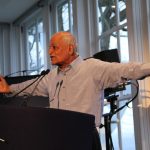
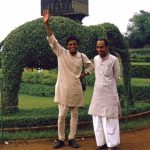

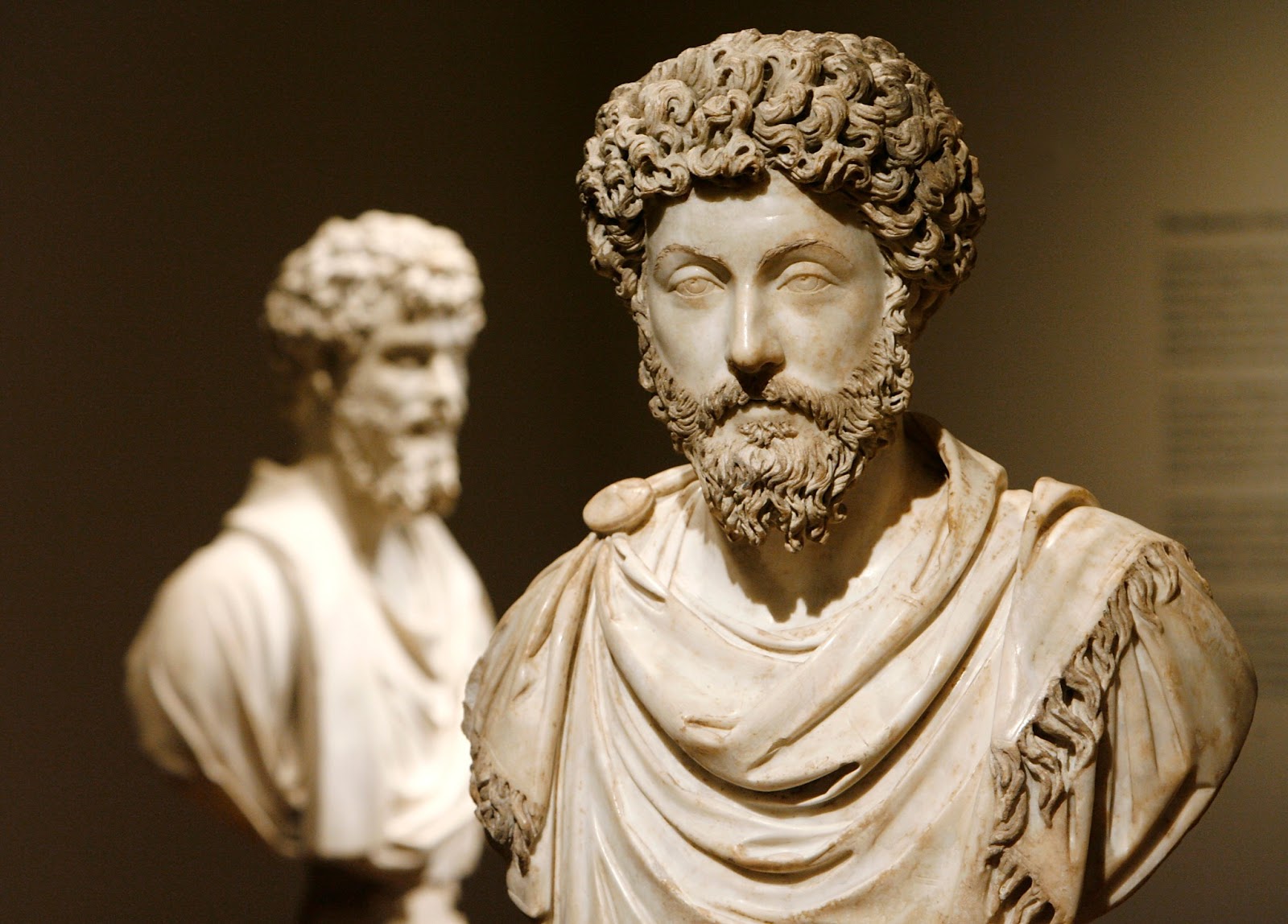

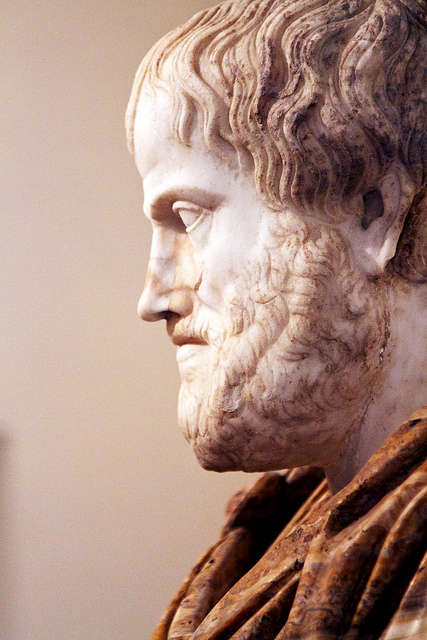
What do you think?